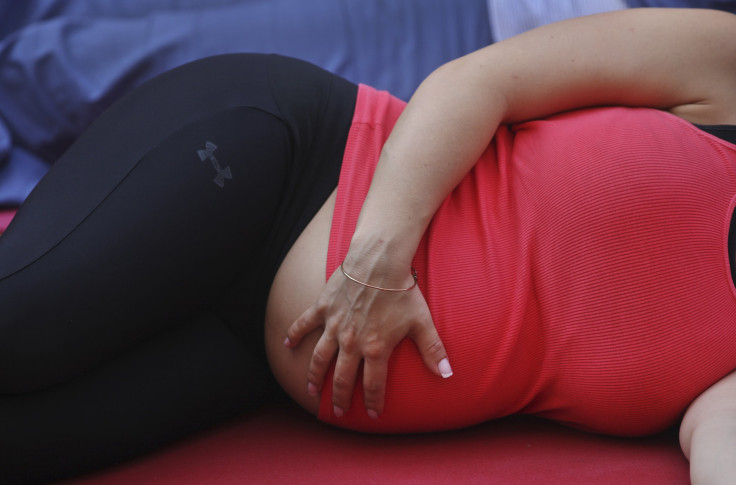A Genetic Predisposition For Schizophrenia Aligns With Timing Of First Birth

Children of older parents may have some health disadvantages, including in the area of mental health. For instance, it’s been known that an older father is more likely to produce a child at greater risk of developing schizophrenia. When a recent study suggested psychosis, a common symptom of schizophrenia, is related to a mother’s, not just the father’s age, a second team of scientists decided to explore the issue. Their results reveal the somewhat surprising impact of DNA: Women genetically predisposed to schizophrenia are more likely to have their first child at either an early age or a later age.
In fact, the new study proposes a U-shaped relationship between risk of schizophrenia and the mother’s age at first birth. On average, women who gave birth either at a younger age (under 20) or older age (over 35) had a significantly higher genetic risk for passing schizophrenia on to their children compared to women of intermediate age, explain Dr. S. Hong Lee of Australia’s University of New England and his colleagues.
Schizophrenia is a severe brain disorder that interferes with a person’s ability to think, manage their emotions, make decisions, and relate to other people. People with schizophrenia often appear withdrawn and sometimes cannot distinguish between reality and delusion. The average age of onset is in the late teens to the early 20s for men, and the late 20s to early 30s for women. This complex, long-term illness is rare, affecting only 1 percent of Americans.
Because schizophrenia is genetic, it frequently runs in families. That said, many people with the disorder don’t have another family member with the disorder, while the opposite is true as well: many people related to someone with the disorder do not develop it themselves. Increasingly, scientists are learning the underlying genetics and believe many different genes combined with environmental and other factors play a role in its genesis. Since no single gene causes the disorder, it’s still impossible for a genetic test to predict who will develop schizophrenia.
Genetics have long been the focus of research, Lee and his colleagues explain, and past research revealed a link between schizophrenia and children born to older fathers. Generally, scientists explained this connection as resulting from spontaneous mutations occurring in old genes, which the fathers pass onto their children. Yet one recent study suggests the mother’s age also matters, so Lee and his co-researchers decided to tease out the truth of parental influence by using multiple genome studies.
The team began their investigation with data from a genome study involving two groups of participants: 18,957 people with schizophrenia and 22,673 people without. By comparing the genetics of each group, the researchers figured out which alleles linked to schizophrenia. (We have two alleles, or genetic variants, inherited from each of our parents at each location on our chromosomes.) Next, the researchers looked at a separate dataset of 12,247 genotyped women and, based on their allele evaluations, created a genetic schizophrenia risk profile score for each woman. Finally, they compared each woman’s age at first birth with her schizophrenia risk score.
Running the numbers, Lee and his colleagues discovered schizophrenia risk profile scores significantly predicted the age at first birth.
“We conclude that women with high genetic predisposition to schizophrenia tend to have their first child at an early age or a later age compared with women in the general population,” concluded the authors. They suggest many of these women may have a family history of schizophrenia and so develop poor social interactions, increasing the time needed to find a mate. Or, they say, it’s possible the schizophrenia risk predisposes them to impulsive behavior, which in women is associated with becoming pregnant for the first time at a younger age.
Whenever past studies linked schizophrenia to a mother’s older age, the researchers explained it away by suggesting older women generally have children with older men — mutations in his genes were the cause, they claimed. This old explanation will no longer suffice, say Lee and his colleagues, if their results can be replicated in future studies.
Source: Mehta D, Tropf FC, Gratten J, et al. Evidence for Genetic Overlap Between Schizophrenia and Age at First Birth in Women. JAMA Psychiatry. 2016.



























